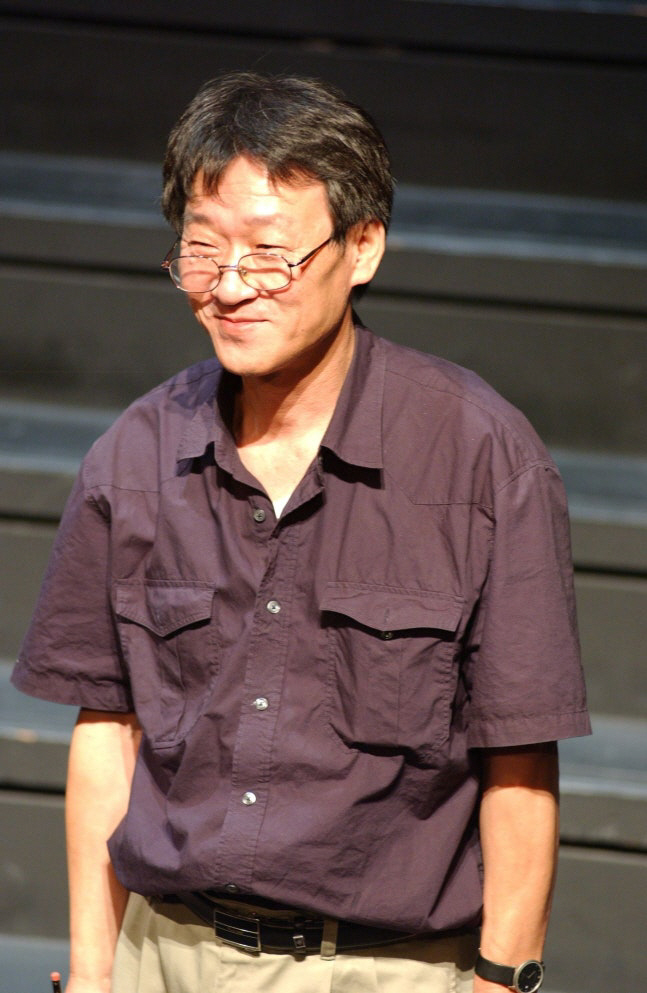
A Legacy of Art and Music: Honoring Kim Min-ki
A year has passed since the passing of Kim Min-ki, a beloved figure in Korea’s performing arts scene. Known for his contributions to music and theater, Kim Min-ki left an indelible mark on the cultural landscape of the country. His death occurred on the 21st of last year at the age of 73, following a battle with cancer. The performing arts community was deeply affected by his loss, as he had spent over three decades nurturing young talent and shaping the future of the industry.
Kim Min-ki's journey began in 1970 when he debuted with the song "Morning Isolation." Over the years, he created numerous songs, including "Evergreen" and "Factory Light," which became popular among fans. In the 1980s, his song "Morning Dew" gained recognition as a democratic protest song and was cherished as a representative folk piece.
In addition to his musical endeavors, Kim Min-ki founded the Daehangno Small Theater Hakjeon in 1991. As a theater director and producer, he was responsible for planning and producing a total of 359 works over 33 years. These included notable musicals such as "Dungi" and "Subway Line 1." His dedication to the arts extended beyond performance; he worked tirelessly to cultivate junior artists, many of whom went on to become prominent figures in the entertainment industry.
Among the notable actors who trained under him are Hwang Jung-min, Seol Kyung-gu, Kim Yun-seok, Kim Hee-won, Cho Seung-woo, Jang Hyun-sung, Kim Kwang-seok, Park Semester, and Yoon Do-hyun. Despite his achievements, the school faced challenges, eventually closing in March of last year due to financial issues and his illness. However, the Korean Culture and Arts Commission stepped in, reopening the small theater as the "Arco Dream Field Theater" in July.
One year after Kim Min-ki's passing, the theater company initiated a "Memorial Project" to honor his legacy. On the 8th, they announced plans to produce and sell a retroactive LP of his first album, "Kim Min-ki," released in 1971. This release is a tribute to his wish that his work remain an honest record of his contributions.
Looking ahead, the school aims to establish the "Hakjeon Kim Min-ki Foundation" this year. The foundation will focus on preserving his cultural heritage and ensuring that his spirit lives on through future generations. The school emphasized that they would not hold a memorial event for the first anniversary, as per Kim Min-ki’s wishes.
Contributions and Impact
Kim Min-ki's influence extended far beyond his own career. He was known for his passion for the arts and his commitment to mentoring the next generation of performers. His work in the theater provided a platform for many aspiring artists to develop their skills and gain exposure. Through his efforts, he helped shape the careers of numerous individuals who have since made significant contributions to Korean culture.
His passing marked the end of an era, but his legacy continues to inspire. The initiatives taken by the theater company reflect a deep respect for his vision and a desire to keep his work alive. By preserving his music and theatrical productions, they ensure that his contributions will not be forgotten.
Looking Forward
As the theater company moves forward with its plans, it remains committed to honoring Kim Min-ki's memory. The establishment of the foundation represents a long-term effort to protect and promote his cultural heritage. Through ongoing projects and collaborations, they aim to create a lasting impact that reflects his values and aspirations.
In conclusion, Kim Min-ki's life and work serve as a testament to the power of art and music. His dedication to the performing arts and his role in nurturing young talent have left a lasting impression on the industry. As the community continues to celebrate his legacy, it is clear that his influence will endure for years to come.
